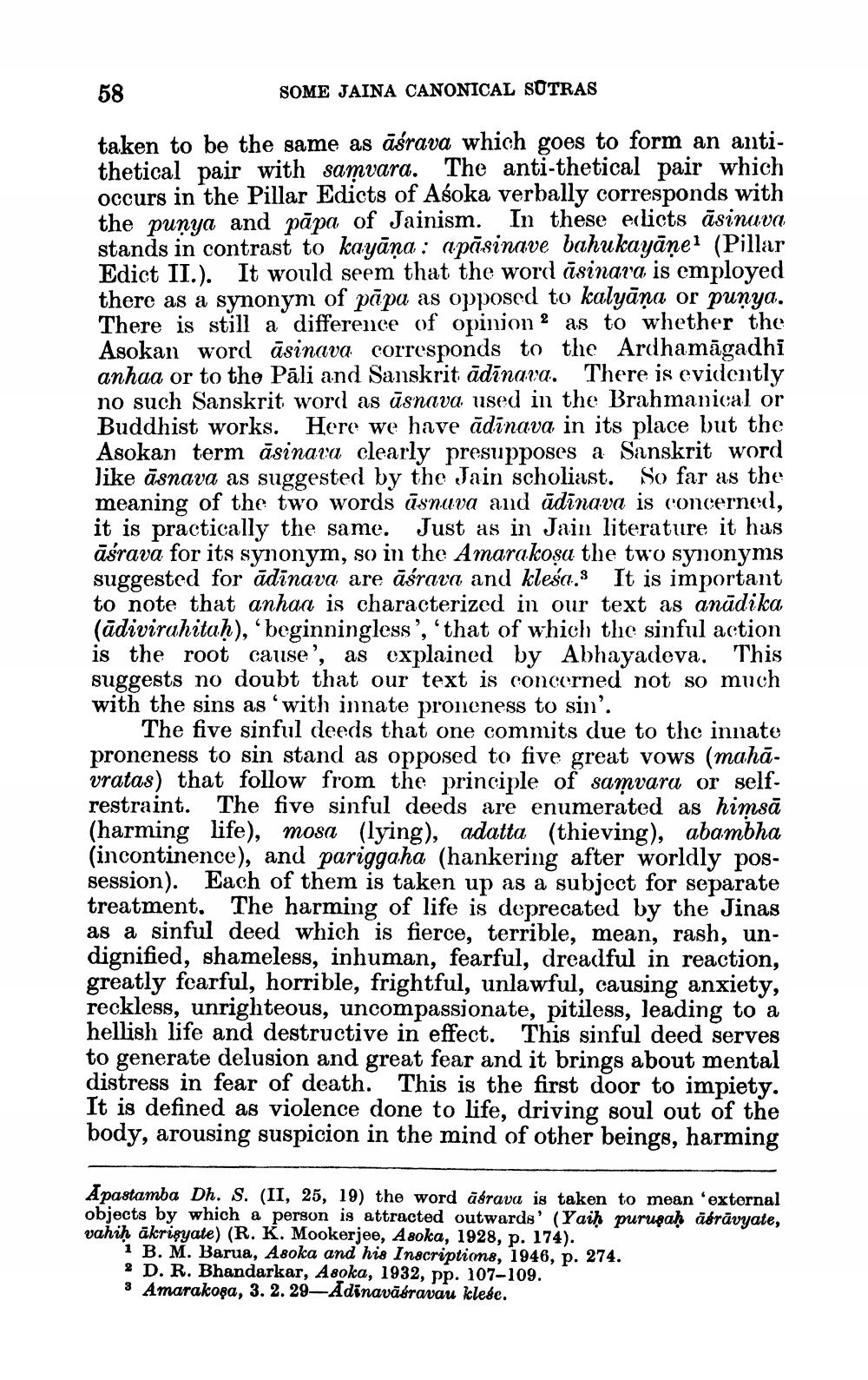________________
58
SOME JAINA CANONICAL SUTRAS
taken to be the same as aśrava which goes to form an antithetical pair with samvara. The anti-thetical pair which occurs in the Pillar Edicts of Aśoka verbally corresponds with the punya and papa of Jainism. In these edicts asinava stands in contrast to kayāna: apasinave bahukayane1 (Pillar Edict II.). It would seem that the word asinara is employed there as a synonym of papa as opposed to kalyāna or punya. There is still a difference of opinion as to whether the Asokan word asinava corresponds to the Ardhamāgadhi anhaa or to the Pāli and Sanskrit adīnava. There is evidently no such Sanskrit word as asnava used in the Brahmanical or Buddhist works. Here we have adīnava in its place but the Asokan term asinava clearly presupposes a Sanskrit word like asnava as suggested by the Jain scholiast. So far as the meaning of the two words asnuva and adīnava is concerned, it is practically the same. Just as in Jain literature it has asrava for its synonym, so in the Amarakosa the two synonyms suggested for adīnava are aśrava and klesa. It is important to note that anhaa is characterized in our text as anadika (adivirahitaḥ), 'beginningless', 'that of which the sinful action is the root cause', as explained by Abhayadeva. This suggests no doubt that our text is concerned not so much with the sins as 'with innate proneness to sin'.
The five sinful deeds that one commits due to the innate proneness to sin stand as opposed to five great vows (mahavratas) that follow from the principle of samvara or selfrestraint. The five sinful deeds are enumerated as himsā (harming life), mosa (lying), adatta (thieving), abambha (incontinence), and pariggaha (hankering after worldly possession). Each of them is taken up as a subject for separate treatment. The harming of life is deprecated by the Jinas as a sinful deed which is fierce, terrible, mean, rash, undignified, shameless, inhuman, fearful, dreadful in reaction, greatly fearful, horrible, frightful, unlawful, causing anxiety, reckless, unrighteous, uncompassionate, pitiless, leading to a hellish life and destructive in effect. This sinful deed serves to generate delusion and great fear and it brings about mental distress in fear of death. This is the first door to impiety. It is defined as violence done to life, driving soul out of the body, arousing suspicion in the mind of other beings, harming
Apastamba Dh. S. (II, 25, 19) the word asrava is taken to mean 'external objects by which a person is attracted outwards' (Yaiḥ purusaḥ aérāvyate, vahiḥ akrisyate) (R. K. Mookerjee, Asoka, 1928, p. 174).
1 B. M. Barua, Asoka and his Inscriptions, 1946, p. 274.
2 D. R. Bhandarkar, Asoka, 1932, pp. 107-109.
3 Amarakoça, 3. 2. 29-Adinavāśravau klese.




